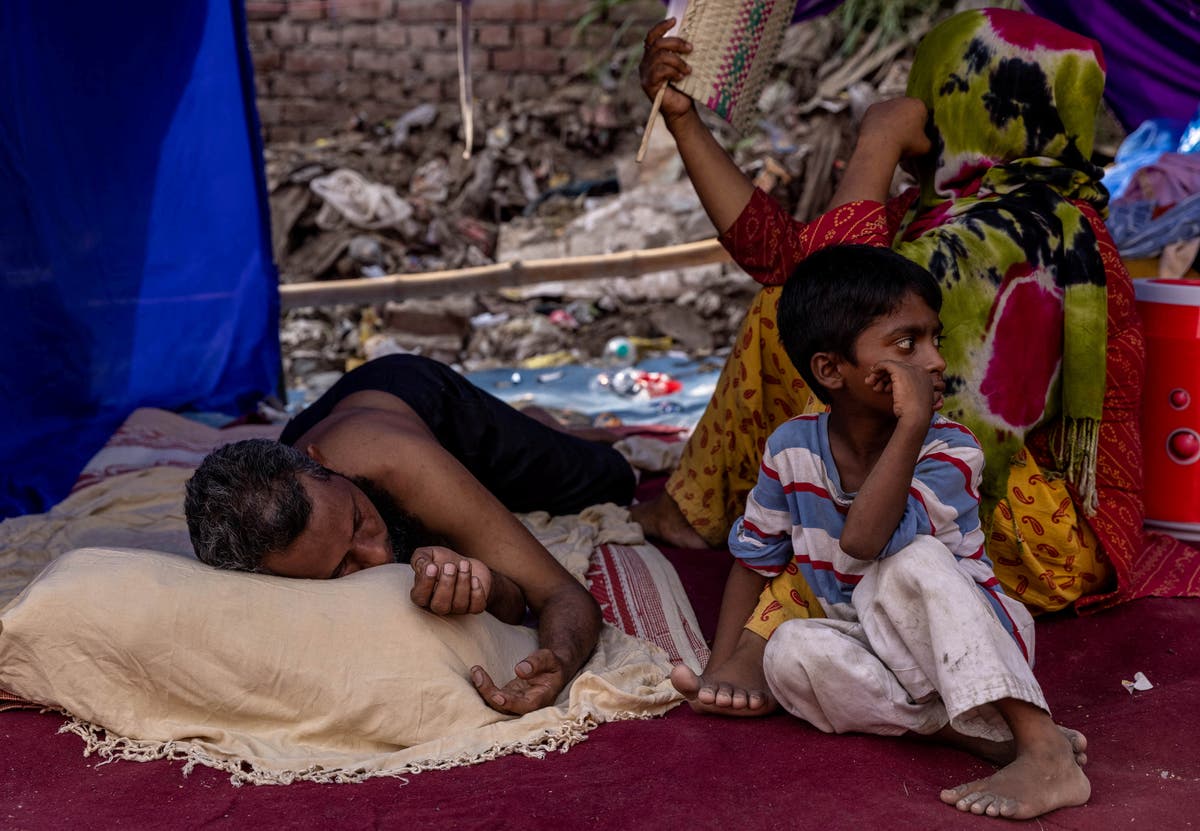
For free real time breaking news alerts sent straight to your inbox sign up to our breaking news emails Sign up to our free breaking news emails Please enter a valid email address Please enter a valid email address SIGN UP I would like to be emailed about offers, events and updates from The Independent. Read our privacy notice Thanks for signing up to the
Breaking News email {{ #verifyErrors }}{{ message }}{{ /verifyErrors }}{{ ^verifyErrors }}Something went wrong. Please try again later{{ /verifyErrors }}
India’s federal government on Wednesday backtracked its housing policy for Rohingya refugees in the capital Delhi following a massive backlash from the right-wing community.
On Wednesday morning, India’s federal minister for housing and urban affairs, Hardeep Singh Puri, announced new housing facilities for the ethnic minority refugees from Myanmar.
He had outlined new provisions for the Rohingya, stating that the refugees would be allotted flats in western Delhi’s Bakkarwala area, provided basic amenities and round-the-clock police protection.
The new policy was seen as a welcomed change in the Hindu nationalist government’s critical stance toward the refugee group.
Calling it a “landmark decision”, Mr Puri had tweeted: “India has always welcomed those who have sought refuge in the country. In a landmark decision, all Rohingya refugees will be shifted to EWS flats in Bakkarwala area of Delhi.”
In a subsequent tweet, he added: “India respects and follows UN Refugee Convention 1951 and provides refuge to all, regardless of their race, religion or creed.”
However, the announcement faced severe backlash from right-wing organisations, including the hardline Vishwa Hindu Parishad (VHP), which is an umbrella group of Hindu outfits and is an ally of prime minister Narendra Modi’s Bharatiya Janata Party (BJP).
Soon after, India’s federal home ministry said in a statement that “Rohingya illegal foreigners” would remain at a locality in the capital southern area as officials chalked out a way to deport them.
“Illegal foreigners are to be kept in the detention centre till their deportation as per law,” the home ministry said. “The government of Delhi has not declared the present location as a detention centre. They have been directed to do the same immediately.”
Over 700,000 Muslim Rohingyas fled Buddhist-majority Myanmar amid waves of violence starting in August 2017, when the military launched a “clearance operation” against them following attacks by a rebel group.
As of 2022, around 1,100 Rohingya live in Delhi and another 17,000 elsewhere in India, where they work blue-collar jobs to make ends meet.
A majority of the refugees are in overcrowded camps in neighbouring Bangladesh.
Five years since their exodus, the refugees are caught in a limbo, with none of the south Asian countries willing to offer them citizenship. The Indian government had tried to repatriate members of the Rohingya, citing a “threat to national security”.
Meanwhile, Bangladesh prime minister Sheikh Hasina told UN high commissioner for human rights Michelle Bachelet on Wednesday that the refugees must return to Myanmar.
“The Rohingya are nationals of Myanmar and they have to be taken back,” Ms Hasina was quoted as saying.







